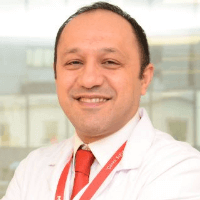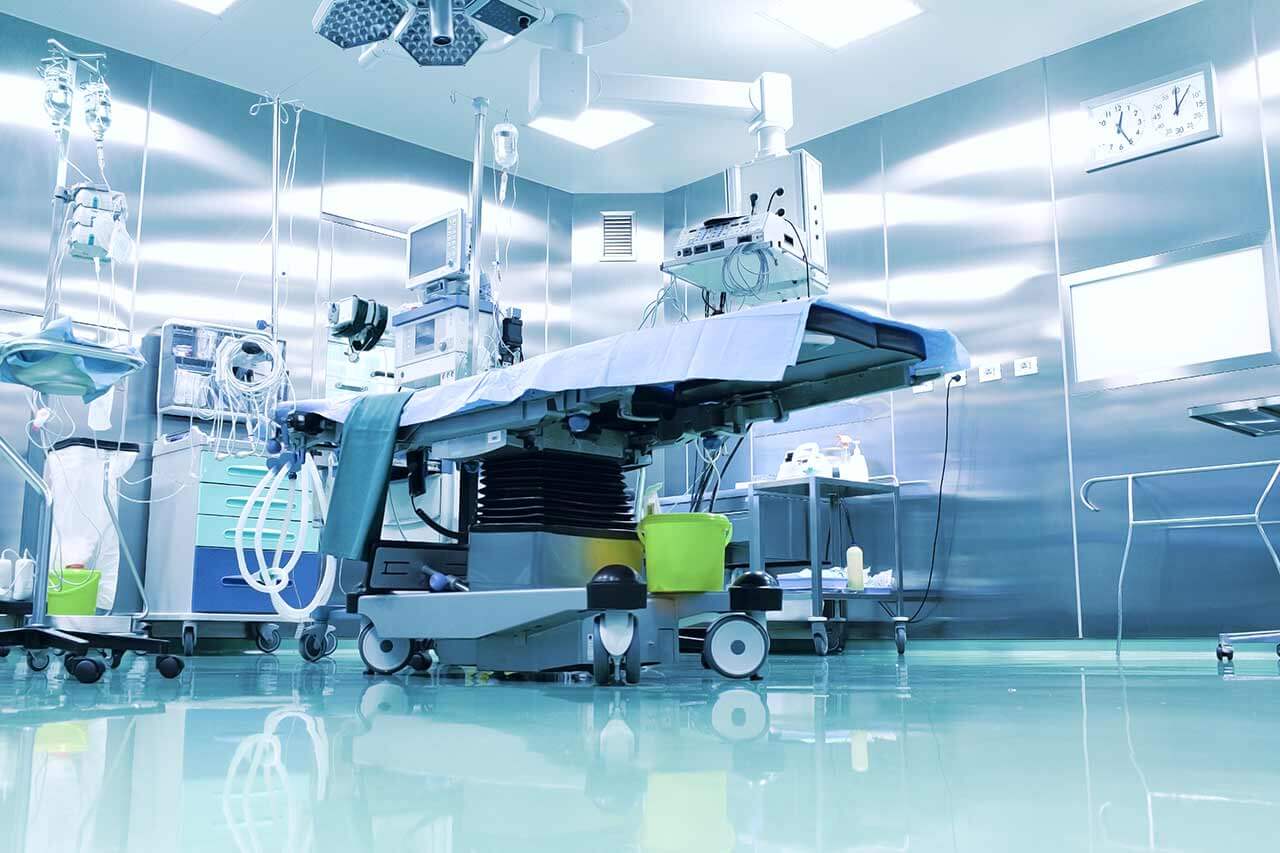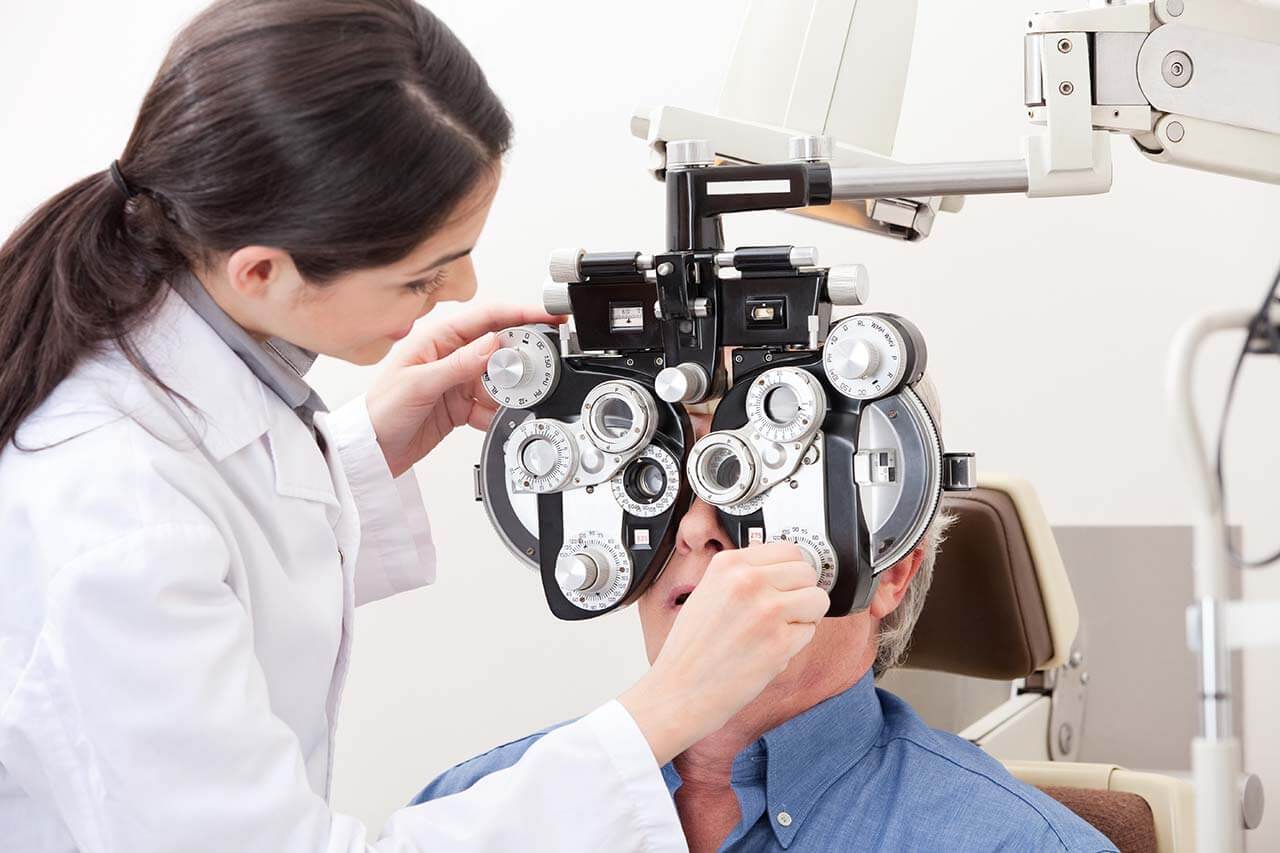
The program includes:
- Initial presentation in the clinic
- case history collection
- general clinical examination
- laboratory tests:
- complete blood count
- biochemical analysis of blood
- indicators of inflammation
- indicators blood coagulation
- ophthalmologic examination:
- ophthalmoscopy
- gonioscopy
- pachymetry
- perimetry (visual field test)
- computerperimetry
- Goldmann-primetry
- fluorescein angiography
- thermography
- capillary microscopy
- testing for optic nerve damage
- tonometry
- intraocular pressure measurement
- preparation according to preoperative standard
- glaucoma treatment with laser trabeculoplasty (ltp)
- symptomatic treatment
- cost of required medications
- nursing staff services
- elaboration of further recommendations
Required documents
- Medical records
Service
You may also book:
 BookingHealth Price from:
BookingHealth Price from:
About the department
The Department of Adult and Pediatric Ophthalmology at the Memorial Sisli Hospital Istanbul offers the full range of services for the diagnostics and treatment of diseases of the eye and its appendages. The department deals with the treatment of patients of various age groups – from infants to the elderly. The key attention in clinical practice is paid to refractive eye surgery, surgical treatment of cataracts, glaucoma, treatment of corneal and retinal diseases, neuro-ophthalmic diseases, correction of strabismus, as well as plastic surgery outside the eyeball (oculoplasty). The department has advanced medical equipment for high-precision diagnostics of eye pathologies and effective treatment of any degree of complexity. The department is headed by Prof. Dr. med. Abdullah Ozkaya.
Before prescribing any type of treatment, an ophthalmologist needs to assess the health status of the eye and its appendages, as well as test the visual acuity. The department has state-of-the-art diagnostic systems for autorefractoceratometry, tonometry for intraocular pressure measurement (as well as applanation one), direct and indirect ophthalmoscopy, biomicroscopy and other tests. All examination results are stored in a special computer database, which provides doctors with an easy and quick access to them.
The specialists begin treatment with the use of conservative techniques, but in some cases, the only way to restore or maintain vision is surgical treatment. The surgical interventions are performed by experienced ophthalmic surgeons who have a perfect command of both classic and innovative techniques. For example, in almost all patients with cataracts, surgery is performed with eye drop anesthesia using seamless phacoemulsification. The department's doctors also successfully perform vitreoretinal interventions, including pars plana vitrectomy for vision correction due to diabetes mellitus, internal limiting membrane peeling and macular translocation for age-related macular degeneration.
The department's competence also includes corneal transplantation (keratoplasty) – when performing the operation, the doctors use graft from the Eye Bank. Corneal transplantation is prescribed for patients with pathological lesions of this organ. It serves for the restoration of vision, pain management and improvement of appearance of the affected cornea. In most cases, surgery is performed for patients with such pathologies as corneal ulcers (including those of the infectious genesis), corneal scarring caused by infections or injuries, Fuchs' dystrophy, keratoconus, clouding and corneal edema.
Particular attention is also paid to the diagnostics and treatment of ophthalmic diseases in children. A team of pediatric ophthalmologists provides the diagnostics at the age of 1-2 months after birth in order to exclude or confirm such ophthalmic pathologies as congenital cataract, glaucoma or tear duct obstruction. The diagnostics of strabismus is also carried out in children under one year. Depending on the diagnosis, the optimal treatment regimen is selected for the child, which is aimed at improving or preserving vision.
It is worth noting that the department's specialists also have excellent qualifications in the diagnostics and treatment of retinopathy of prematurity. It often develops at a weight of 1500 g, in children who were born before the 32nd week of pregnancy.
The department's clinical focuses include:
- Diagnostics and treatment of cataract
- Diagnostics and treatment of glaucoma
- Diagnostics and treatment of retinal diseases (for example, retinal detachment, retinal dystrophy, diabetic retinopathy, retinal tear)
- Diagnostics and treatment of corneal diseases, including corneal transplantation (for example, keratoconus, degenerative and dystrophic lesions)
- Diagnostics and treatment of vitreous diseases (for example, congenital malformations, inflammatory processes, vitreous hemorrhages)
- Diagnostics and treatment of lacrimal duct diseases
- Diagnostics and treatment of neuro-ophthalmic diseases (for example, optic neuritis, abnormal eye movements)
- Diagnostics and treatment of refractive errors
- Myopia
- Hyperopia
- Astigmatism
- Presbyopia
- Diagnostics and treatment of strabismus
- Diagnostics and treatment of eyelid diseases (for example, blepharitis, chalazion, benign and malignant tumors)
- Diagnostics and treatment of eye injuries
- Diagnostics and treatment of pediatric eye diseases (congenital cataract, congenital glaucoma, strabismus, retinopathy of prematurity)
- Diagnostics and treatment of other eye diseases
Curriculum vitae
Professional Career
- Since 2019 Head of the Department of Adult and Pediatric Ophthalmology at the Memorial Sisli Hospital Istanbul, Istanbul, Turkey.
- Since 2018 Assistant Professor at the Istanbul Aydın University, Istanbul, Turkey.
- 2018 - 2019 Ophthalmologist, Department of Ophthalmology, Surp Pirgic Hospital, Istanbul, Turkey.
- 2015 - 2018 Assistant Professor, Beyoglu Eye Training and Research Hospital, Istanbul, Turkey.
- 2013 - 2015 Deputy Head, Beyoglu Eye Training and Research Hospital, Istanbul, Turkey.
- 2010 - 2012 Ophthalmologist, Beyoglu Eye Training and Research Hospital, Istanbul, Turkey.
- 2009 - 2010 Ophthalmologist, Department of Ophthalmology, Bakirkoy Dr. Sadi Konuk Training and Research Hospital, Istanbul, Turkey.
- 2008 - 2009 Ophthalmologist, Gulhane Military Medical Academy, Ankara, Turkey.
Higher Education and Postgraduate Training
- 2002 - 2007 Highly specialized training in Ophthalmology, Tepecik Training and Research Hospital, Izmir, Turkey.
- 1996 - 2002 Study of Human Medicine at the Faculty of Medicine of the University of the Aegean, Izmir, Turkey.
Scientific Publications
- 83 articles in international scientific journals.
- 29 reports in international scientific conferences and published as scientific articles.
- 46 articles in Turkish scientific journals.
Memberships in Professional Societies
- Turkish Ophthalmological Association (TOD).
- Turkic Turkish Republics Ophthalmology Society (TROS).
- European VitreoRetinal Society (EVRS).
Photo of the doctor: (c) Memorial Şişli Hospital
About hospital
The Memorial Sisli Hospital Istanbul is the largest and leading medical complex in Turkey, which meets the highest standards of medical care when providing the advanced diagnostics and treatment using the very latest methods. The hospital is part of the Memorial Health Group – it was the first project of this provider of medical services. The medical center opened its doors to the first patient in 2000. The hospital became the first in Turkey and the twenty-first in the world holder of the JCI (Joint Commission International) accreditation certificate. Only the best and the most reputable hospitals in the world medical arena can receive this certificate.
The hospital has 292 beds for patient hospitalization. The surgical treatment is performed in 13 high-tech operating rooms. The medical complex also has 4 intensive care units, 3 state-of-the-art laboratories, specialized centers, including the In Vitro Fertilization Center, the Transplant Center, the Center for Genetic Diseases, the Bone Marrow Transplant Center, the Robotic Surgery Center, the Cancer Center and others.
The hospital has achieved particular success and international recognition in such medical fields as ophthalmology, reproductive medicine, plastic surgery, cardiology and cardiac surgery, transplantology, genetics. The highly qualified doctors who have undergone professional training in the best hospitals in Turkey, Europe and the USA take care of the patients' health. The specialists have a tremendous clinical experience and thousands of saved lives.
It is worth noting that the medical complex has earned a strong reputation not only in Turkey, but also at the international level – the hospital holds consultations, provides diagnostics and treatment for patients from 92 countries.
Image: (c) depositphotos
Accommodation in hospital
Patients rooms
The patients of the Memorial Sisli Hospital Istanbul live in comfortable single or double rooms with all the necessary amenities. The patient rooms are made in a modern design. The standard patient room includes an automatically adjustable bed, a bedside table, a wardrobe for storing personal belongings, a telephone and a TV. Each patient room also has an ensuite bathroom with shower and toilet. The patient rooms have Wi-Fi.
Meals and Menus
The patient and the accompanying person are offered tasty and balanced three meals a day. If for some reason you do not eat all foods, you will be offered an individual menu. Please inform the medical staff about your food preferences prior to treatment.
Further details
Standard rooms include:
Accompanying person
During the inpatient program, the accompanying person can live with the patient in a patient room or a hotel of his choice. Our managers will help you choose the most suitable option.
Hotel
During an outpatient program, the patient can stay at the hotel of his choice. If desired, the patient can stay in a five-star hotel on the territory of the hospital. Our managers will help you choose the most suitable option.




